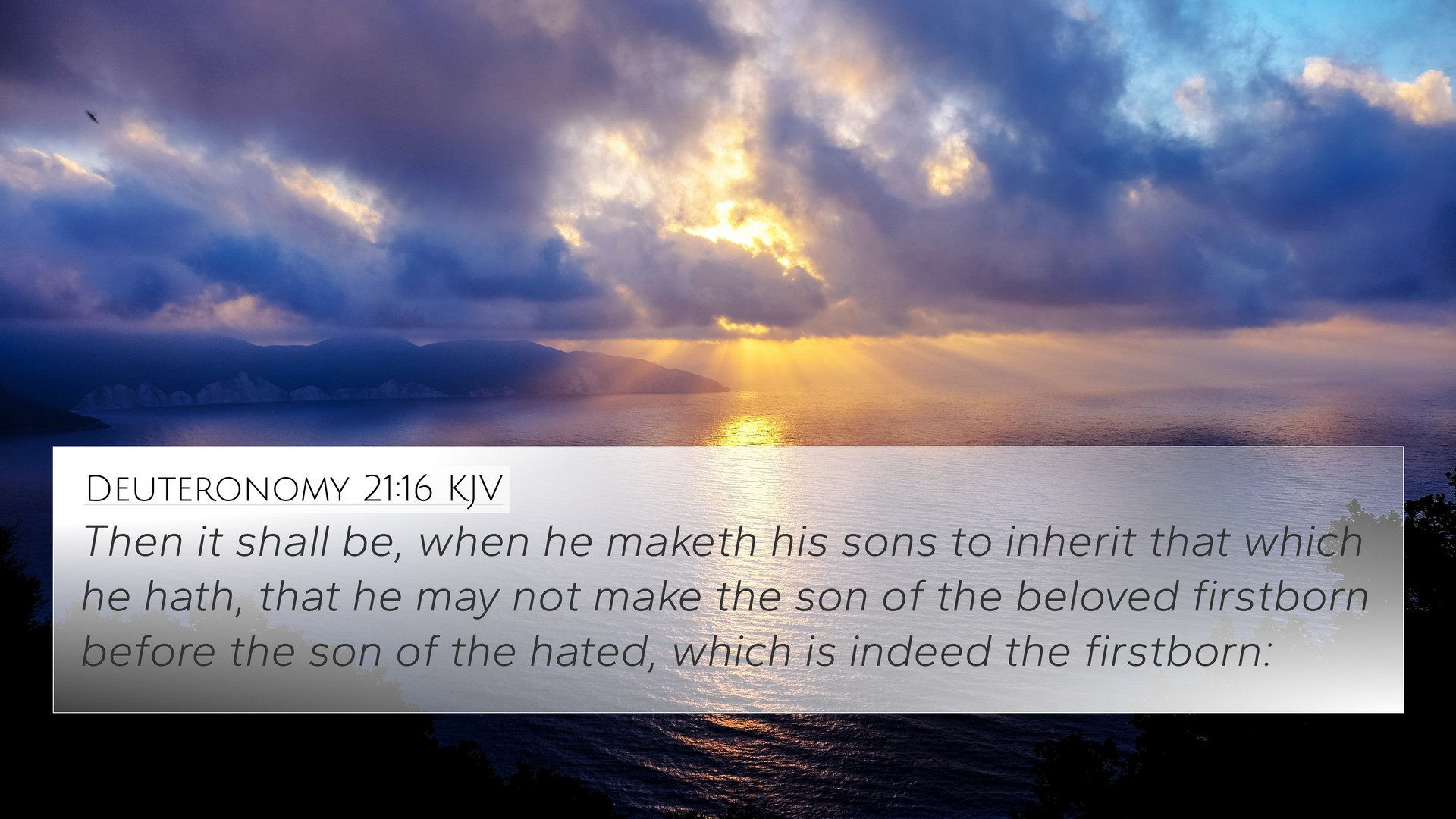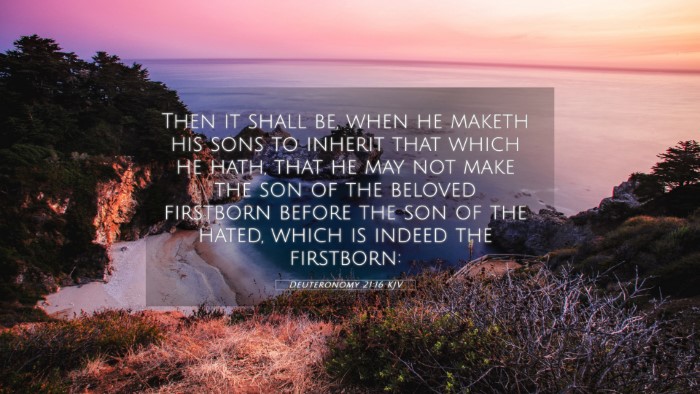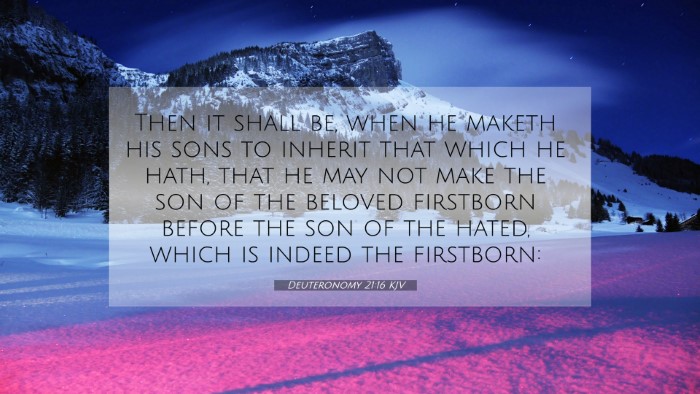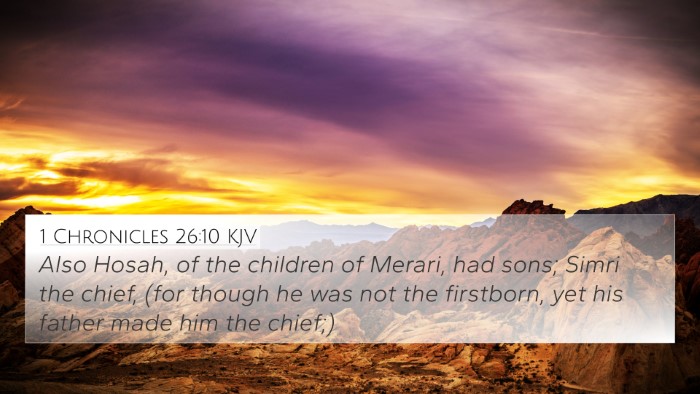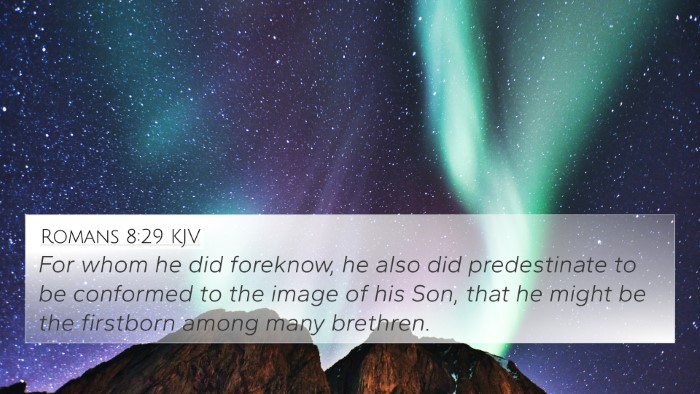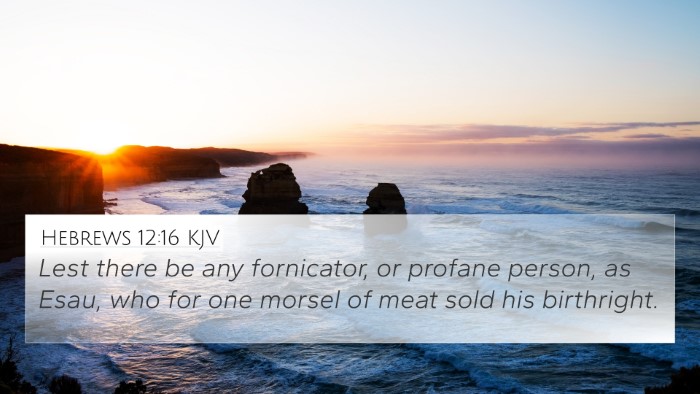Meaning and Interpretation of Deuteronomy 21:16
Bible Verse: Deuteronomy 21:16
Verse Text: "Then it shall be, when he makes his sons to inherit that which he has, that he may not make the son of the beloved firstborn before the son of the hated, who is indeed the firstborn." (NKJV)
Contextual Overview
Deuteronomy is known as a restatement of the Law given to the Israelites as they prepare to enter the Promised Land. This particular verse addresses inheritance rights and the principle of justice in familial relationships.
Insights from Public Domain Commentaries
-
Matthew Henry:
Henry highlights the principle of equitable treatment in inheritance laws. He emphasizes the importance of not allowing personal favoritism to govern decisions that should stem from justice and fairness, especially in the context of family relationships.
-
Albert Barnes:
Barnes notes that the text underscores the significance of maintaining familial equity. He suggests that the will of the father must align with the order of nature, thereby preventing favoritism based on affection rather than birthright.
-
Adam Clarke:
Clarke elaborates on the cultural context of inheritance in ancient Israel. He elaborates on the significance of the firstborn in tribal society, and how this law was instituted to ensure that the rightful heir was not overlooked due to parental biases.
Key Themes
- Justice and Inheritance: The verse reiterates the importance of justice in the allocation of inheritances.
- Family Relationships: Discusses the dynamics of familial relationships and the potential conflicts that may arise from favoritism.
- Equity Over Favoritism: It serves as a reminder that one’s affections should not distort rightful inheritance channels.
Cross References
This verse can be linked to several others for a deeper understanding:
- Genesis 25:31-34: The story of Jacob and Esau highlights the consequences of trading birthrights for immediate gratification.
- Exodus 21:15: This verse discusses the value of parental responsibilities and the expectations of treatment within family units.
- Leviticus 27:26: Addresses the rights associated with being a firstborn, emphasizing their significance in covenant communities.
- 1 Chronicles 5:1-2: This passage reflects on the birthright and its significance, further reiterating the theme of rightful inheritance.
- Romans 9:13: The idea of God's love for Jacob compared to Esau can be seen as a backdrop to the human dynamics of preference in familial contexts.
- Galatians 4:22-31: This reflects the relationship dynamics between two covenants which also portrays the principles of inheritance.
- Proverbs 13:22: The righteous man leaves an inheritance to his children, aligning with the principle of fair distribution.
Thematic Bible Verse Connections
The themes represented in Deuteronomy 21:16 resonate throughout the Bible, linking various scriptures about inheritance, justice, and familial relations. This continuity emphasizes God's principles of righteousness and equity that transcends individual narratives.
Practical Applications
- Reflecting on the ethical implications of favoritism in personal relationships.
- Understanding the importance of justice in any spiritual or familial leadership role.
- Encouraging equitable distribution of resources and responsibilities within families.
Conclusion
Deuteronomy 21:16 serves as an essential reminder of the significance of equity within familial relationships, urging us to consider our actions against the backdrop of God’s justice. Engaging with cross-referenced scriptures offers a fuller perspective on the themes of favoritism, inheritance, and justice in both Old and New Testament narratives.
